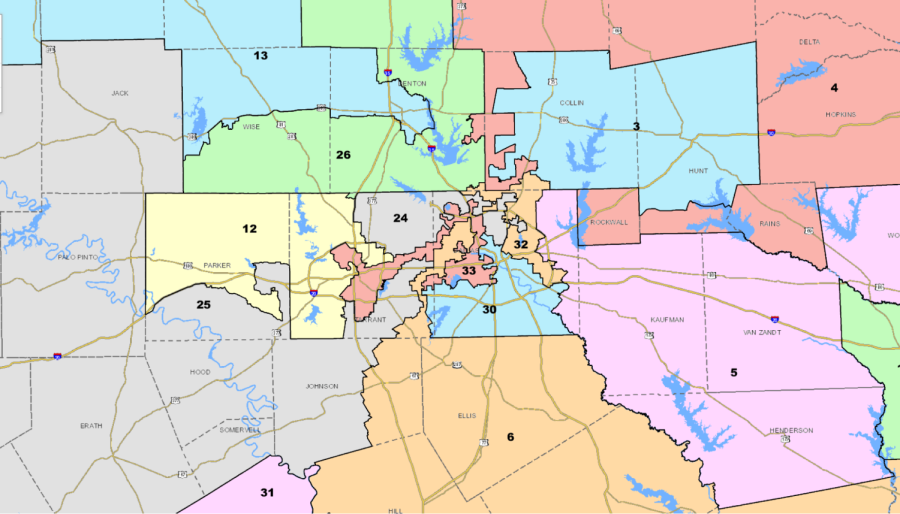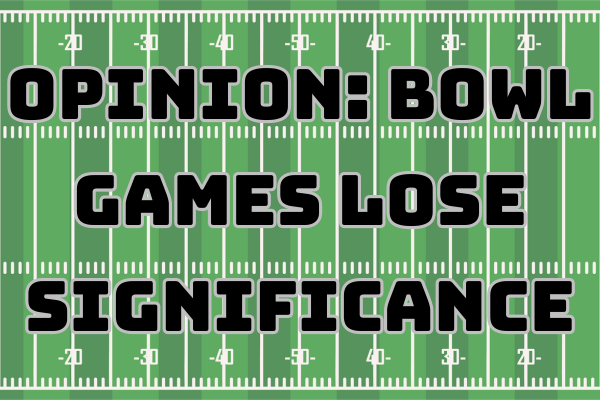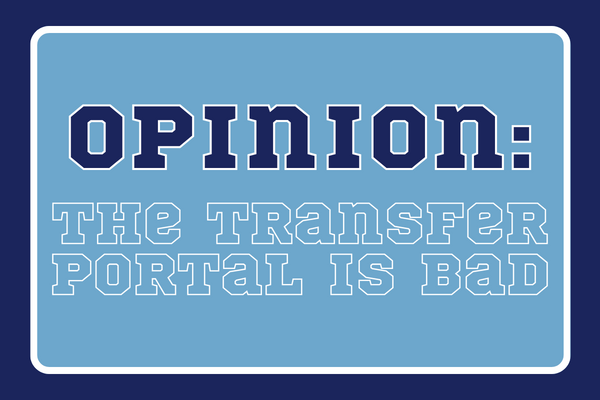Voter suppression is taking place across this state. The Encyclopedia Britannica defines voter suppression as “any legal or extralegal measure or strategy whose purpose or practical effect is to reduce voting, or registering to vote, by members of a targeted racial group, political party, or religious community.” Voter suppression takes many forms, from trying to stop registration to locking up felons for attempting to vote and gerrymandering election maps. All of this happens in lengthy legal documents and closed-room committees. Combatting voter suppression also takes many forms, from litigating cases about these laws in court, filing amicus briefs and complaints, and trying to increase public awareness.
Crystal Mason, CEO and President of Crystal Mason the Fight, thinks combatting voter suppression involves setting up tents and handing out pizza.
Crystal Mason’s life was turned upside down when she was convicted of illegal voting because she cast a provisional ballot in the 2016 general election despite being convicted of a tax felony several years earlier. She, with the counsel of the ACLU of Texas, is out on bond while fighting her conviction in an appellate court, and in the meantime, she’s started an organization that helps people vote.
“We address voter suppression across the nation. We are vested in our communities and focusing on initiatives such as prevention workshops, community education teams, neighborhood clean-ups, community growth programs, planned events, and activities,” Mason said.
About a month ago, she visited Legacy High School to help students sign up for voting. Her organization set up a booth and passed out flyers, voter registration forms and free pizza. This is how she fights voter suppression.
It’s a tactic used to keep people away from the polls. Therefore, it literally takes away your voice to speak, to voice your opinion on what actually affects you. How can you look into change if your change option is taken away from you,” Mason said.
Ms. Mason’s conviction has inspired her and many others to fight voter suppression in Texas. Her organization helps sign students up to vote.
“[Voting is] important because the message has to be that you do matter, Your voice matters. You do have a say so on what affects you and your community,” Mason said. “You have the ability to help and enforce change,” Ms. Mason said.
Some seniors at Legacy are eligible to vote, though many do not know much about voter suppression in a wider context. Senior Ayder Compeau is unsure of voting in the upcoming election. When talking about voter suppression, he said,
[Voter suppression] intimidates people. It’s a tactic used to keep people away from the polls. Therefore, it literally takes away your voice to speak, to voice your opinion on what actually affects you. How can you look into change if your change option is taken away from you. — Ms. Crystal Mason
“I think it’s like, where they try to stop, they don’t want people voting anymore, or something like that. I don’t think it’s fair—I don’t. There are a lot of things going on—affecting a lot of people in the government.”
Though voter suppression as a concept seems complicated to understand because it is carried out through dozens of dense legal documents, it is important to understand voter suppression in this state, especially as it pertains to Texas v. Mason, Fair Maps Texas Action Committee et al. v. Abbott et al., and Senate Bill 1.
On May 23, 2018, the ACLU of Texas and the Texas Civil Rights Project filed an amicus brief with the Tarrant County Criminal Court. In the “Interests of Amici Curiae” section of the brief, the ACLU of Texas and the TCRP explain their motives.
“The American Civil Liberties Union Foundation of Texas…is dedicated to protecting the fundamental liberties and basic civil rights of all Texans as guaranteed by the U.S. Constitution and our nation’s civil rights laws,” the document said. “The Texas Civil Rights Project focuses its work on tackling the systemic issues that suppress voting rights in Texas – from voter registration to the moment an individual casts their ballot.”
In the documents, both organizations argue the conviction should be overturned because it violates the Help America Vote Act (HAVA); the state cannot legally demonstrate Mason’s violation of the election code.
“In prosecuting Ms. Mason under the Texas Election Code’s illegal voting statute and creating a scheme in which prospective voters must be infallible with respect to their eligibility or else risk criminal prosecution,” the brief stated.
The Court of Criminal Appeals of Texas affirmed the conviction on two grounds: HAVA did not preempt her conviction and the lower court was correct in saying Ms. Mason “voted” despite her casting a provisional ballot which was never counted. However, they remanded one ground for further investigation, which argued that she was unaware of her ineligibility to vote, and as such should not be punished for her mistake.
“The court of appeals’ sufficiency analysis relied on an erroneous interpretation of the statute, as Appellant stated in ground one. As a remedy, we remand ground one for additional proceedings consistent with this opinion,” the court said in its opinion.
Although she has been fighting this case for four years, Ms. Mason used her platform to bring attention to voter suppression.
“My life was literally turned upside down all in a matter of what feels like seconds. I have changed how it affected me and turned it completely into something positive [and] something much greater,” Ms. Mason said.
Soon there will be more cases like Texas v. Mason because of the passage of Senate Bill 1, a bill that amends the Texas Election Code. This bill introduces many more restrictions on alternative voting methods, on voter registration, and sets new penalties for vaguely defined election crimes.
“The early voting clerk or other election official commits an offense if the clerk or official knowingly mails or otherwise provides an early voting ballot by mail or other early voting by mail ballot materials to a person who the clerk or official knows did not submit an application for a ballot to be voted by mail under Section 84.001,” the bill states.
This bill makes it a criminal offense to distribute vote-by-mail ballots to those who did not request one. Furthermore, it bans drive-through voting and 24-hour voting. It also restricts how an assistant can help disabled people vote, making assistants swear an oath that includes:
“I will confine my assistance to reading the ballot to the voter, directing the voter to read the ballot, marking the voter’s ballot, or directing the voter to mark the ballot.”
This clause disallows assistants from helping disabled people operate the voting machine or helping disabled people get around the polling place. This bill has passed both houses of the Texas Legislature. This is not the only way they are suppressing votes. On October 25, 2021, Governor Greg Abbott approved a redistricting plan called Plan C2193. This plan severely gerrymandered communities of color across Texas, which is why the ACLU of Texas filed a complaint in a lawsuit called Fair Maps Texas Action Committee et al. v. Abbott et al.
In every decade since the passage of the Voting Rights Act in 1965, Texas has unlawfully discriminated against voters of color. This year, the state has pursued the same course. As during the preceding decades, federal court intervention is urgently necessary to block the state’s unlawful designs. — ACLU of Texas
The “designs” referenced are the aggressively gerrymandered districts from Plan C2193 which crack, or cut apart, minority communities in urban areas and mix them with predominantly white rural counties. The district borders effectively slice minority voters and move them into districts with white majority populations. This leads to a map that looks like this:
In the complaint, the ACLU of Texas references the cracking of primarily Asian communities in Plano and Frisco, which are split up between districts 3 and 4.
“A large concentration of the AAPI community in Collin County was previously within Congressional District 3. Plan C2193, however, cracks AAPI neighborhoods with almost surgical precision and places a significant percentage of them into District 4, which is a large district that spans 12 counties and is 74.31% white CVAP [Citizen Voting Age Population]. This dilutes the votes of AAPI voters in both districts,” the complaint said.
This is why Legacy High School is in the same state senate district as Waxahachie and Corsicana. This plan, C2193, dilutes voters of color and makes it nearly impossible for people of color to make a difference in an election.
Voter suppression seeks to take apart the right to vote, and recent legislation has only expanded voter suppression, by making it more difficult to vote, by making votes worthless, and by viciously destroying the lives of anyone who makes a mistake when voting. However, the situation is not hopeless. Students can still help to fight voter suppression, by learning more about elections, spreading awareness about suppression, and most importantly, going out to vote.
“Your voice is powerful. You are the leaders of tomorrow. Never say what you can’t do, focus and believe in what you can do that is right,” Ms. Mason said.
















